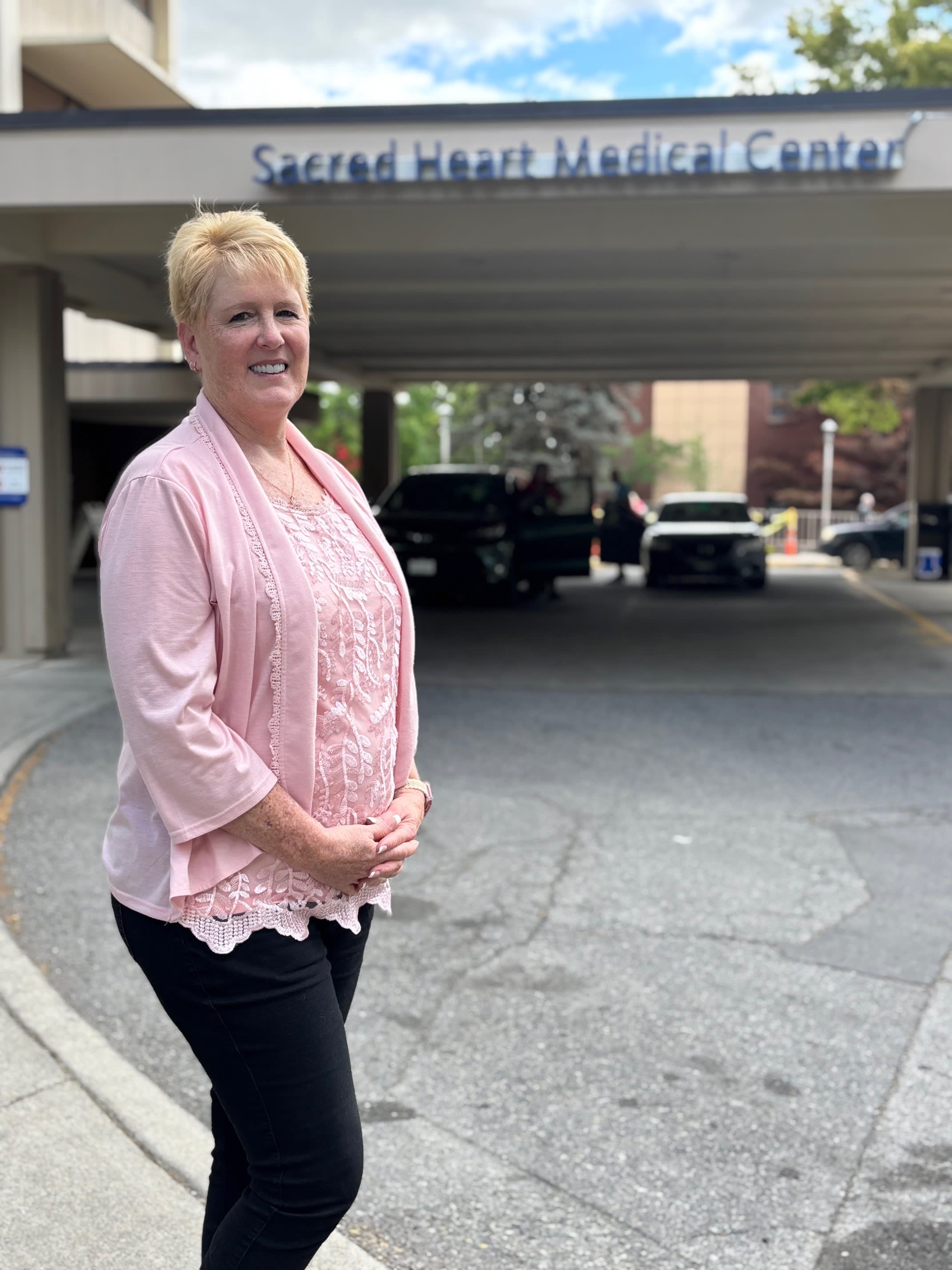SPOKANE, Wash. – Missy Seck, 63, will tell you that she was given the gift of being diagnosed with ovarian cancer early. But it really was her awareness of her body and her quick action to get seen when something just didn’t seem right.
Missy had already been in menopause for five years when she started unexpectedly bleeding again in 2019.
“Every woman needs to be proactive about their body,” Seck said.
Seck found specialized care with Dr. Elizabeth Grosen at Providence’s Gynecologic Oncology clinic on the Providence Sacred Heart Medical Center campus in Spokane. Seck was diagnosed with granulosa cell tumor, a rare form of ovarian cancer. Unlike other ovarian cancers, granulose cell tumor causes extra estrogen – often to leading to bleeding.
“They are not the most common tumors,” Dr. Grosen said. “They can reappear 20 years later, unlike other typical ovarian cancers which reappear again quickly.”
Seck underwent successful surgery and was hospitalized for five days to recover. She then started chemo and completed it in December 2019. She’s returned to the clinic every four months to follow up to ensure the tumor hasn’t come back. So far, it hasn’t.
“The level of treatment and the physicians and nurses at Providence doesn’t compare to other places,” Seck said. “They made me feel safe and secure.”
For someone who lives on a hay farm in North Idaho, it can be a long trip – but Seck said she wouldn’t go anywhere else. And because she got the care she needed, she’s able to stay on “her little hay haven” with her family and animals.
September is recognized as Gynecological Cancer Awareness Month. Her story is a prime example of the power in listening to your body. Dr. Grosen said it’s not just discomfort in the lower abdomen, but all of it.
“The signs of ovarian cancer are not always specific,” Dr. Grosen explained. “We really must think about the entire of abdominal area – pain, bloating, pressure on the bladder, changes in bowel function. Abnormal vaginal bleeding should always be evaluated.”
Dr. Grosen urges women to meet with their provider and request an exam or ultrasound if they are experiencing pain in the abdomen that isn’t going away.
“There’s a history of women’s health concerns not being heard,” Dr. Grosen said. “You don’t have to see a doctor, but you need to see someone who is comfortable taking care of women. We don’t want to miss diagnosing a cancer.”
For Seck, this may have saved her life.
If you have concerns, please talk to your doctor about getting a referral to Providence’s Gynecologic Oncology clinic.
Visit our website for more information.
About the Author
More Content by Providence News Team






















